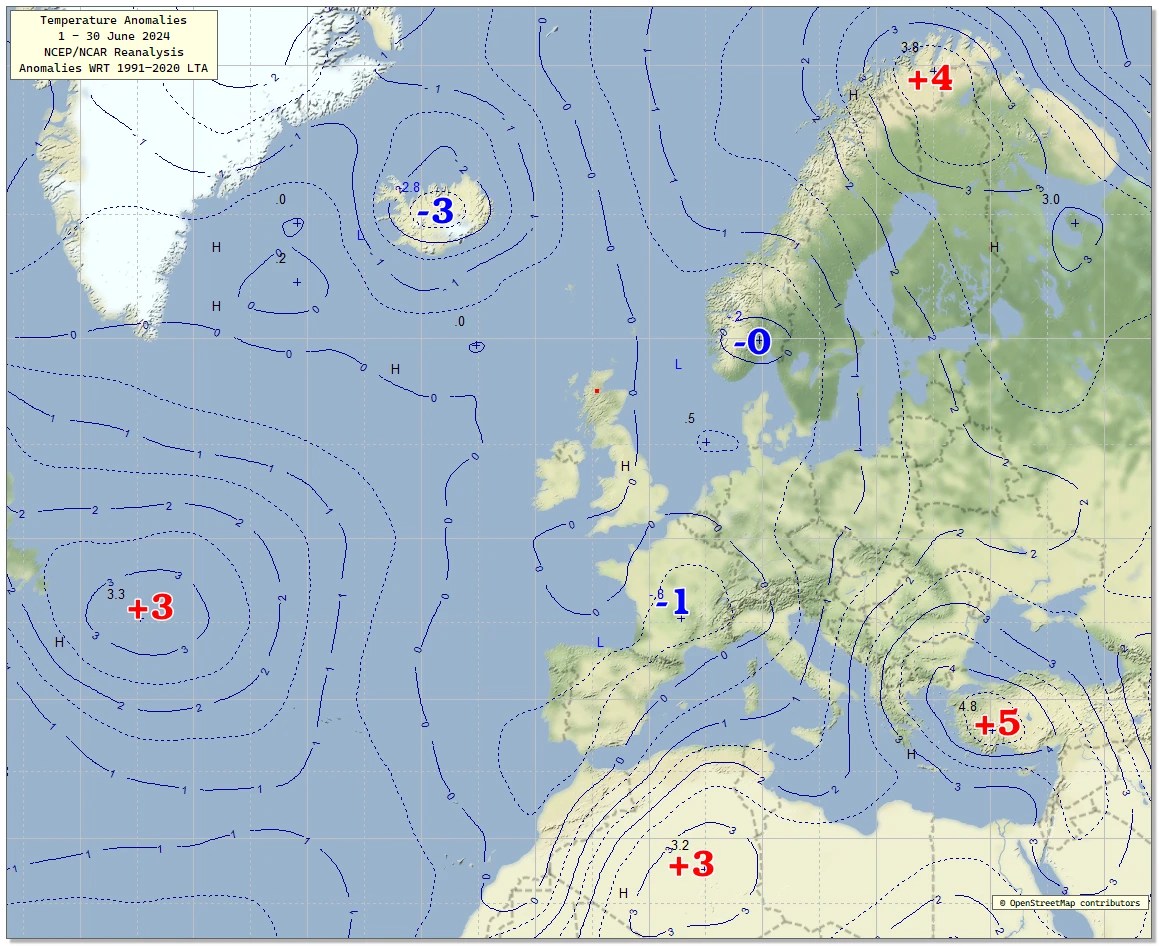January 2025 – Temperature anomalies

An exceptionally mild January across northern Quebec (+13°C), much colder further south across the southern United States (-4°C). Europe, particularly further east, was very mild with a large area of warm anomalies (+6°C) centred across eastern Russia. Anomalies across the Atlantic were generally closer to average, but it was slightly warmer than average to the east of Iberia, and slightly colder to the north of Iceland.
January 2025 – Temperature anomalies Read More »




























